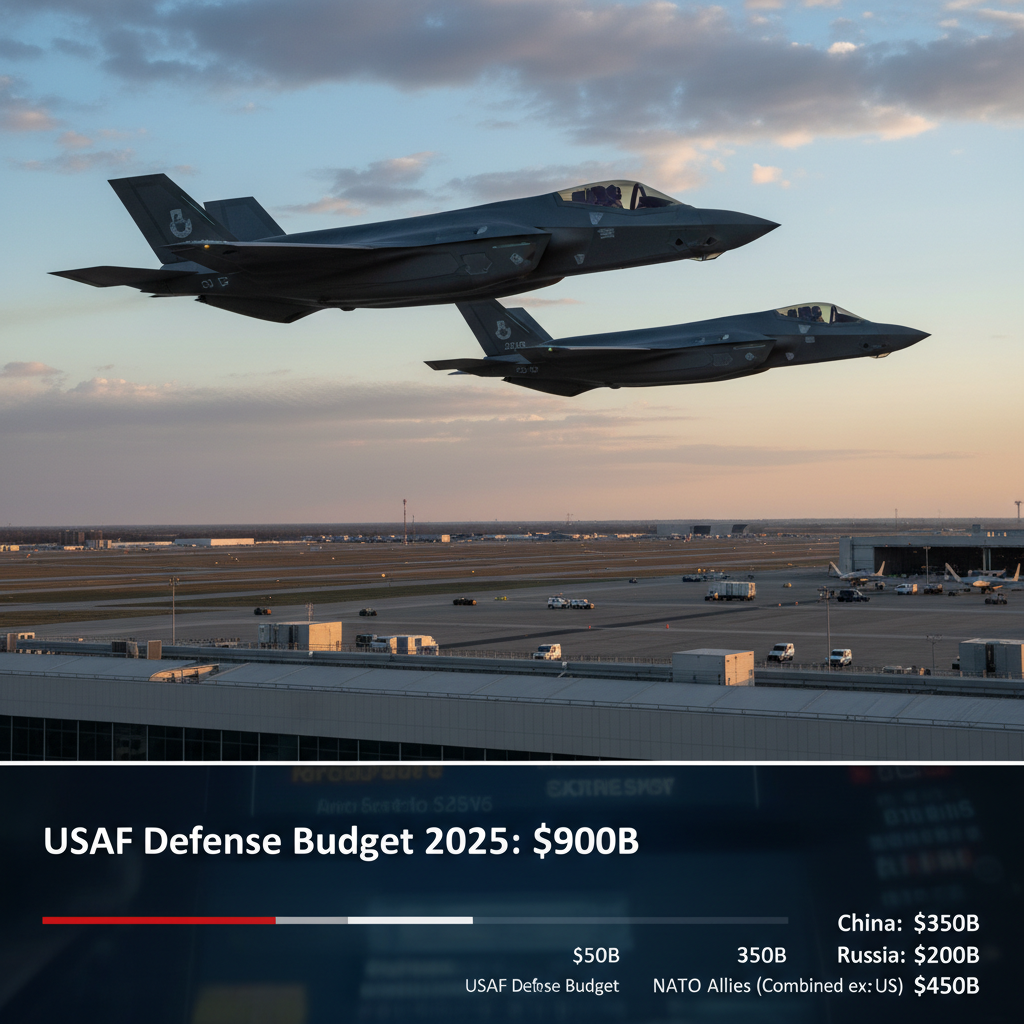Physical Address
304 North Cardinal St.
Dorchester Center, MA 02124
Physical Address
304 North Cardinal St.
Dorchester Center, MA 02124
Global aviation news tracker
Global aviation news tracker

US airpower spending in 2025 keeps Washington firmly ahead on the global stage.
The US Air Force budget remains the largest worldwide in 2025, with the US investing heavily in advanced fighter jets, strategic bombers and next‑generation technology to sustain NATO’s collective defense posture and Western air superiority. That priority shapes procurement and modernization across allied air forces as competitors like China, Russia, Germany and India respond.
Funding focuses on three broad areas: combat aircraft and sustainment, long-range strike platforms, and research into emerging systems such as unmanned systems, sensors and command-and-control upgrades. While precise contract values and line-item figures vary by program and fiscal quarter, the spending emphasis signals continued modernization rather than force expansion alone.
For pilots, maintainers and defense planners, the headline is less about raw dollars and more about capability lifecycles: keeping frontline fighters mission-ready, extending bomber reach, and integrating avionics and communications across NATO. Those efforts are aimed at deterring adversaries and ensuring interoperability with allies operating mixed fleets and logistics chains.
The ripple effects are clear: partner nations often align procurement schedules and training to remain interoperable, while defense contractors scale production and supply chains to meet allied requirements. At the same time, diplomacy and alliance planning weigh budget commitments against broader security objectives and regional risks.
Ultimately, the 2025 budget story is about capability stewardship—keeping airframes flying, upgrading systems, and investing in the tools that keep allied skies secure. Observers should watch program announcements and multinational exercises for practical signs of how that spending translates into readiness on the ground and in the air.